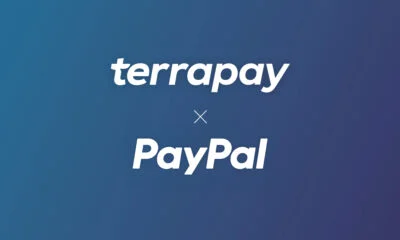News
Saudi Arabia Launches $200 Million High-Tech Investment Fund
The spending is part of King Abdullah University of Science and Technology’s strategy to promote economic diversification and create new technical jobs.

Saudi Arabia’s Crown Prince Mohammed bin Salman has announced the launch of a $200 million fund to invest in domestic and international tech firms as part of the Kingdom’s economic diversification plan.
The investment fund is part of a strategy devised by the King Abdullah University of Science and Technology (KAUST) and focuses on “increasing the likelihood of turning research into economically beneficial innovations”.
Plans include launching the National Transformation Institute for Applied Research (NTI) to improve technology development and commercialization, restructuring research centers, and creating a new fund to “enhance economic diversification and contribute to the creation of high-quality technical jobs”.
HRH the Crown Prince launches KAUST's new strategy, which aims to transform research into economically productive innovations by focusing on the national priorities for research, development, and innovation.https://t.co/yvZ8UnnFcR#SPAGOV pic.twitter.com/yEqS7Zia05
— SPAENG (@Spa_Eng) August 20, 2023
“The new strategy builds on Kaust’s scientific and academic achievements and represents a new era for the university to become a beacon of knowledge and a source of inspiration and innovation in line with Vision 2030 aspirations,” Prince Mohammed explained in a recent press release.
Technology is an essential pillar of Saudi Arabia’s economy as the country transitions away from oil production. The Kingdom is projected to invest $34.6 billion on information and communications technology by the end of 2023, making it the top-spending nation in the Middle East, Turkey, and Africa.
Also Read: Dubai Municipality To Test Construction Materials Using AI Robots
In February, Saudi Arabia announced plans to invest $9 billion in its technology sector, which includes a $2.1 billion commitment from Microsoft. In addition, Oracle has announced plans to invest $1.5 billion in Saudi cloud computing, and Huawei has earmarked $400 million to enhance the country’s cloud infrastructure.
Meanwhile, King Abdullah University of Science and Technology will continue collaborating with several international tech companies, including IBM and Boeing, and has partnered with academic and commercial institutes in Shenzhen on aerospace, robotics, and microelectronics projects.
News
Google Releases Veo 2 AI Video Tool To MENA Users
The state-of-the-art video generation model is now available in Gemini, offering realistic AI-generated videos with better physics, motion, and detail.

Starting today, users of Gemini Advanced in the MENA region — and globally — can tap into Veo 2, Google’s next-generation video model.
Originally unveiled in 2024, Veo 2 has now been fully integrated into Gemini, supporting multiple languages including Arabic and English. The rollout now brings Google’s most advanced video AI directly into the hands of everyday users.
Veo 2 builds on the foundations of its predecessor with a more sophisticated understanding of the physical world. It’s designed to produce high-fidelity video content with cinematic detail, realistic motion, and greater visual consistency across a wide range of subjects and styles. Whether recreating natural landscapes, human interactions, or stylized environments, the model is capable of interpreting and translating written prompts into eight-second 720p videos that feel almost handcrafted.
Users can generate content directly through the Gemini platform — either via the web or mobile apps. The experience is pretty straightforward: users enter a text-based prompt, and Veo 2 returns a video in 16:9 landscape format, delivered as an MP4 file. These aren’t just generic clips — they can reflect creative, abstract, or highly specific scenarios, making the tool especially useful for content creators, marketers, or anyone experimenting with visual storytelling.
Also Read: Getting Started With Google Gemini: A Beginner’s Guide
To ensure transparency, each video is embedded with SynthID — a digital watermark developed by Google’s DeepMind. The watermark is invisible to the human eye but persists across editing, compression, and sharing. It identifies the video as AI-generated, addressing concerns around misinformation and media authenticity.
While Veo 2 is still in its early phases of public rollout, the technology is part of a broader push by Google to democratize advanced AI tools. With text-to-image, code generation, and now video creation integrated into Gemini, Google is positioning the platform as a full-spectrum creative assistant.
Access to Veo 2 starts today and will continue expanding in the coming weeks. Interested users can try it out at gemini.google.com or through the Gemini app on Android and iOS.





















